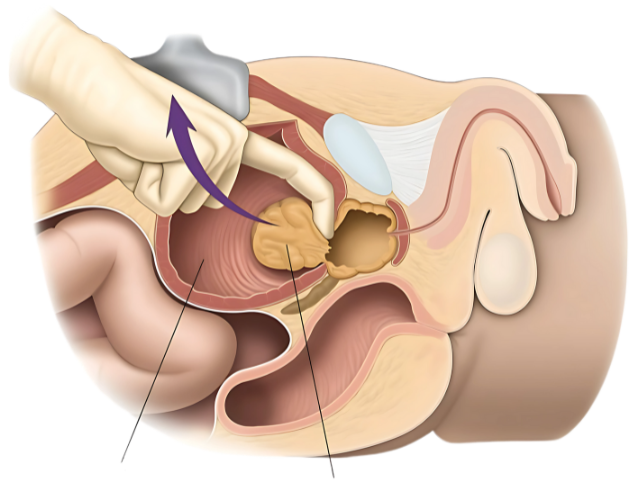Prostatectomy is a surgical procedure to remove part or all of the prostate gland, primarily performed for prostate cancer or Benign Prostatic Hyperplasia (BPH). At KK Virat Hospital, Karimnagar, we offer state-of-the-art treatment using minimally invasive techniques for faster recovery and better outcomes. Our expert urologists ensure precision, safety, and compassionate care throughout the treatment journey.
What Is Prostatectomy?
Prostatectomy is a surgical procedure to remove part or all of the prostate gland. It is primarily performed to treat prostate cancer but can also be necessary for other conditions such as Benign Prostatic Hyperplasia (BPH). Depending on the severity of the case, the surgery can be performed using open, laparoscopic, or robotic techniques. The prostate gland is located below the urinary bladder and plays a crucial role in producing seminal fluid.
At KK Virat Hospital, Karimnagar, our expert urologists use advanced surgical methods to ensure the best outcomes with minimal discomfort.

Types of Prostatectomy Surgery
Depending on the condition, our urologists perform different types of prostatectomy procedures:
1. Radical Prostatectomy (For Prostate Cancer)
This involves the complete removal of the prostate gland, surrounding tissues, and lymph nodes. It is the preferred treatment for prostate cancer cases where there is a risk of cancer spreading.
2. Simple Prostatectomy (For Benign Prostatic Hyperplasia – BPH)
Only the affected part of the prostate obstructing the urethra is removed. This procedure is commonly used for treating enlarged prostate (BPH) and relieving urinary symptoms.
Diagnostic Tests Before Prostatectomy
Before undergoing surgery, our urologists conduct a series of diagnostic tests to assess the prostate gland’s condition:
- Digital Rectal Exam (DRE): To examine prostate size and abnormalities.
- Prostate-Specific Antigen (PSA) Test: Measures PSA levels to detect prostate issues.
- Cystoscopy: Uses a scope to examine the bladder and prostate size.
- Ultrasound & MRI Scans: Provide detailed imaging of the prostate gland.
- Prostate Biopsy: Confirms the presence of prostate cancer.
Preparing for Prostatectomy Surgery
Proper preparation is essential for a smooth surgery and recovery. Follow these guidelines:
- Bowel Preparation: Use laxatives or enemas as advised.
- Dietary Changes: Avoid solid foods before surgery, as instructed.
- Quit Smoking: Helps speed up post-surgery recovery.
- Medication Management: Discuss ongoing medications with your doctor.
Prostatectomy Surgery Techniques at KK Virat Hospital
1. Laser Prostatectomy
- Minimally invasive with low risk of bleeding.
- Quick recovery and short hospital stay.
- Uses a laser to remove excess prostate tissue through the urethra.
2. Robot-Assisted Radical Prostatectomy
- High precision surgery with robotic arms.
- Minimally invasive with smaller incisions.
- Nerve-sparing technique to preserve sexual function and continence.
3. Open Radical Prostatectomy
- Traditional surgery involving a large incision in the lower abdomen.
- Used in cases where cancer has spread beyond the prostate.
4. Open Simple Prostatectomy
- Preferred for severe BPH cases.
- Removal of obstructive prostate tissue through an incision in the lower abdomen.
Recovery & Aftercare
After surgery, our doctors ensure a smooth recovery process with personalized post-operative care:
- Pain Management: Medications to ease discomfort.
- Early Mobilization: Walking on the same day of surgery.
- Urinary Catheter: Required for 7-10 days post-surgery.
- Regular Follow-Ups: Check-ups every 3 months in the first year.
- Kegel Exercises: To strengthen pelvic floor muscles.
- Sexual Recovery: Erectile function recovery can take 6-18 months.
Risks of Prostatectomy
Like any surgery, prostatectomy has certain risks:
- Bleeding
- Urinary Incontinence
- Urinary Tract Infection (UTI)
- Erectile Dysfunction
- Urethral Narrowing
- Lymphocele (Fluid buildup near lymph nodes)
Our expert urologists take all precautions to minimize complications and ensure a safe recovery.
Benefits of Prostatectomy
Prostatectomy offers significant health benefits, including:
- Permanent Cancer Removal: Eliminates cancerous prostate cells.
- Urinary Symptom Relief: Resolves issues like frequent urination and weak flow.
- Improved Quality of Life: Enhances overall well-being and comfort.
- Minimally Invasive Options: Faster recovery with robotic and laser techniques.
Why Choose KK Virat Hospital for Prostatectomy?
At KK Virat Hospital, Karimnagar, we offer cutting-edge prostatectomy procedures with high precision and care. Here’s why we are the preferred choice for prostate treatments:
- Highly Experienced Urologists – Skilled specialists trained in advanced prostate surgeries.
- State-of-the-Art Facilities – Equipped with modern operation theaters and diagnostic tools.
- Minimally Invasive Techniques – Laser and robotic-assisted prostatectomy for faster recovery.
- Comprehensive Patient Care – From diagnosis to post-surgical follow-ups.
- Affordable Treatment Options – Cost-effective pricing with insurance assistance available.
Your Health, Our Priority – Book Your Consultation Today!
At KK Virat Hospital, Karimnagar, we ensure safe, advanced, and confidential care tailored to your needs.
- Call Us Directly: Get in touch with our medical coordinators to schedule an appointment with an expert urologist.
- Direct Visit: You can visit our hospital directly by carrying your previous medical records if you have a medical history. However, admission will be based on the doctor’s recommendation.
How painful is a prostatectomy?
Prostatectomy is performed under anesthesia, so you won’t feel pain during surgery. Post-surgery, mild to moderate pain is common, but it is managed with medications. Minimally invasive techniques like robotic-assisted prostatectomy cause less pain and faster recovery compared to traditional open surgery.
Who needs a prostatectomy?
Prostatectomy is recommended for men diagnosed with prostate cancer or benign prostatic hyperplasia (BPH) when other treatments fail. It is also required in cases of severe urinary retention or chronic prostate infections.
Is prostatectomy covered under insurance?
Yes, most health insurance policies cover prostatectomy, especially if it is performed for prostate cancer or severe BPH. Coverage depends on the policy and provider, so check with your insurance company for details on hospital expenses, surgeon fees, and post-surgical care.
Which is the best prostatectomy technique?
Robotic-assisted radical prostatectomy is considered the best technique as it offers greater precision, fewer complications, and quicker recovery. Laser prostatectomy is ideal for BPH treatment, while open surgery is reserved for complex cases.
How long does it take to recover from prostatectomy?
Most patients recover within 4 to 6 weeks, but full recovery, especially urinary and sexual function, may take several months to a year. Minimally invasive techniques help reduce downtime significantly.
What are the risks of prostatectomy?
Common risks include urinary incontinence, erectile dysfunction, bleeding, infection, and urethral stricture. However, choosing an experienced surgeon and following post-op care guidelines can minimize complications.
Can you live a normal life after prostatectomy?
Yes! Most men return to normal activities within a few weeks. While some experience changes in sexual function and urinary control, these often improve over time with rehabilitation exercises like Kegels.
Will a prostatectomy affect sexual function?
Radical prostatectomy may impact erectile function temporarily, but nerve-sparing techniques help preserve erections. Medications, therapy, and lifestyle changes can assist in restoring sexual health.
What foods should I eat after prostate surgery?
A high–fiber diet rich in fruits, vegetables, and whole grains helps prevent constipation. Staying hydrated and consuming lean proteins can aid in faster recovery and tissue healing.
Can prostate cancer return after a prostatectomy?
If all cancerous tissue is removed, the risk of recurrence is low. However, in some cases, cancer may return if microscopic cancer cells remain. Regular PSA tests and follow-ups are crucial for monitoring.


